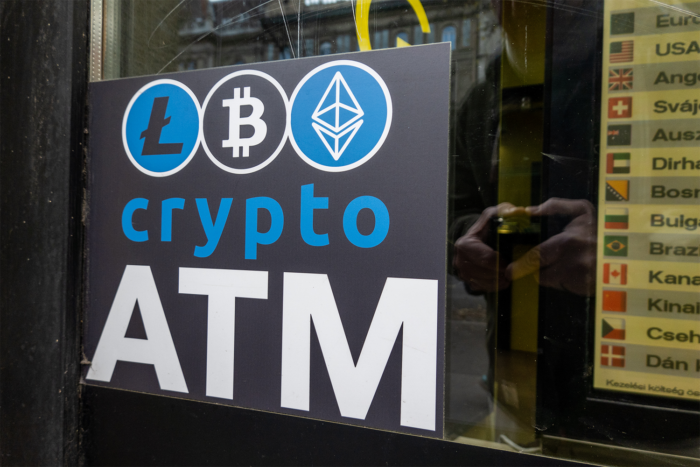Citing an increasing number of concerns around non-compliant crypto ATMs being used in Australia to engage in money laundering, financial scams, and terrorism financing, the Australian Transaction Reports and Analysis Centre (AUSTRAC) in December 2024 formed a specialised internal taskforce to crack down and eliminate non-compliant crypto services and their operators/owners.
What are crypto ATMs and how do they work?
Digital currency exchanges (DCEs) that provide crypto ATM services (called CATMs by AUSTRAC) allow Australians to buy cryptocurrencies such as Dogecoin and Bitcoin using digital wallets, cash, or credit cards.
What is AUSTRAC?
AUSTRAC, the Australian Transactions Reports and Analysis Centre is Australia’s anti-money laundering and counter-terrorism financing regulator as well as its financial intelligence service. Alongside ensuring that businesses are compliant with their reporting and risk management obligations, it also analyses and provides law enforcement (including national security partners) with data that assists them in their operations and investigations.
AUSTRAC Taskforce
Established in December 2024, the taskforce’s purpose is to ensure all digital currency exchanges that provide crypto ATM services meet Australia’s anti-money laundering regime, which includes abiding with the Anti-Money Laundering and Counter-Terrorism Financing (AML/CTF) Act 2006, being registered with AUSTRAC, and complaint with all mandatory reporting regulations.
Australian crypto statistics
Based on data published by the Australian Broadcasting Corporation (ABC), it is estimated that approximately 3,707,000 people own crypto in Australia. The ABC also provides the following state/territory breakdown of crypto owners:
- NSW: 1,300,000
- Vic: 801,000
- Qld: 850,000
- SA: 294,000
- WA: 462,000
Machines in Operation
As of June 2025, AUSTRAC estimates that across Australia there are about 1,800 crypto ATMs in use, with “new ones regularly installed by digital currency exchanges”.
Crypto Concerns
Highlighting concerns and “worrying trends and indicators of suspicious activity, including transactions that may be linked to scams or fraud”, AUSTRAC Chief Executive Brendan Thomas’ taskforce intends to increase its monitoring of CATMs to identify rule-flaunting providers using them for money laundering purposes and to take advantage of Australians through the use of scams.
Crypto Compliance Problems
Presently, criminals can use crypto ATMs to illegally launder money transferred into crypto ATMs – turning physical money into crypto assets that cannot be traced. Furthermore, according to a recent report by the ABC, it is estimated that “Australians lost $3 million to scams involving crypto ATMs in the last 12 months to January”.
Common Crypto Scams
Of the numerous scams reported, the most common were extortion emails and romance and investment scams, that would, for example, direct victims to open crypto accounts and send money to crypto wallets that scammers could then access with greater levels of anonymity at nearby crypto ATMs.
Reporting Obligations
Part of the remit of this taskforce is ensuring that crypto ATM providers are compliant with Australian regulations, are registered with AUSTRAC, and meet their reporting obligations, which include the following:
- Reporting threshold transactions of $10,000 AUD or more
- Submitting international funds transfer instruction reports for transfers (of any value) made into or out of Australia
- Submitting suspicious matter reports if a customer or transaction is suspected to be linked to criminal activity
- Lodging compliance reports to show how the company is meeting AML/CTF rules and regulations
- Submitting reports of cross-border movements of physical currency amounting to $10,000 AUD or the foreign currency equivalent
Providing financial crime assistance
To assist crypto ATM exchanges to ensure they are compliant, AUSTRAC provided exchange owners with materials such as a financial crime guide to help recognise and report on crimes involving digital currencies. AUSTRAC also makes numerous guides and risk assessment designed to help businesses “identify and report suspicious activity” available online.
Consequences of not meeting obligations
Failing to meet reporting obligations could result in “enforcement actions”. As stated by Thomas, crypto ATMs and DCEs that fail to be compliant “risk being subject to significant financial penalties and AUSTRAC won’t hesitate in taking action”.
Actions that could be taken include enforcing compliance through actions such as civil penalty orders, the issuance of penalty units, enforcement undertakings, infringement notices, or remedial directions. AUSTRAC could also appoint an external auditor and even suspend or cancel the registration of digital currency exchange providers and/or remittance service providers.
What you can do to help
AUSTRAC encourages members of the public to contact the police, Scamwatch, or ReportCyber if they suspect or have identified a potential fraud or scam related to crypto ATMs.
Key Takeaways
In addressing and tackling non-compliant crypto ATMs, the newly-created cryptocurrency taskforce hopes to curb illicit financial transactions and protect Australians from fraudulent scams.



